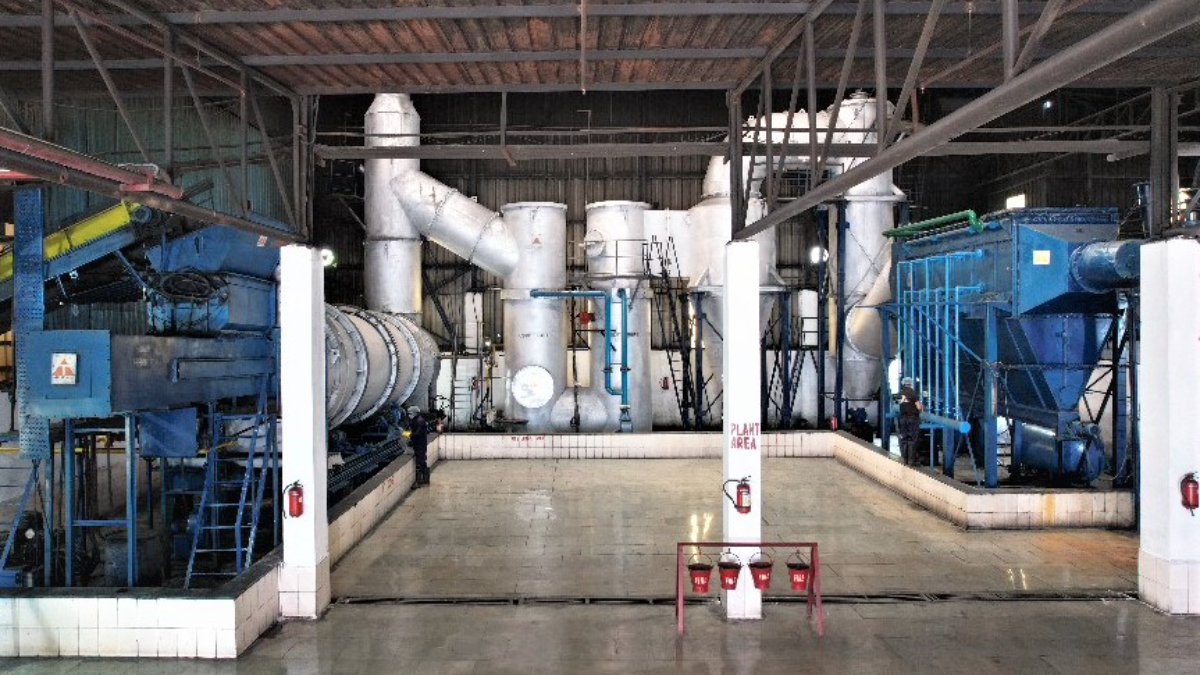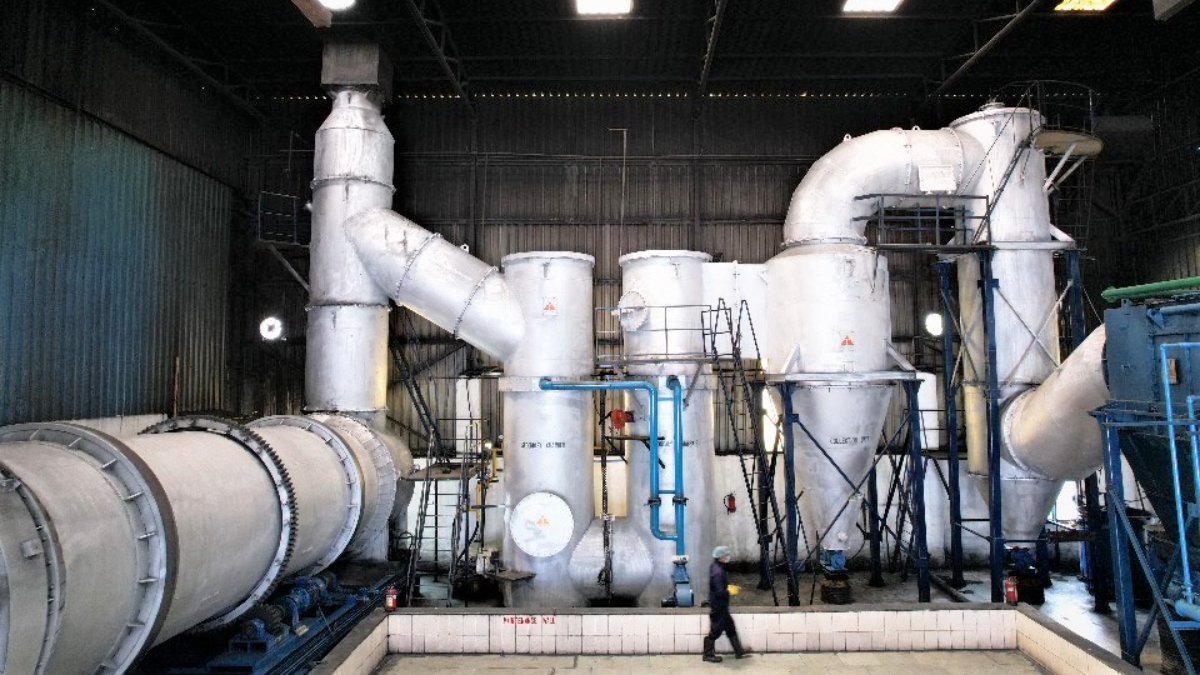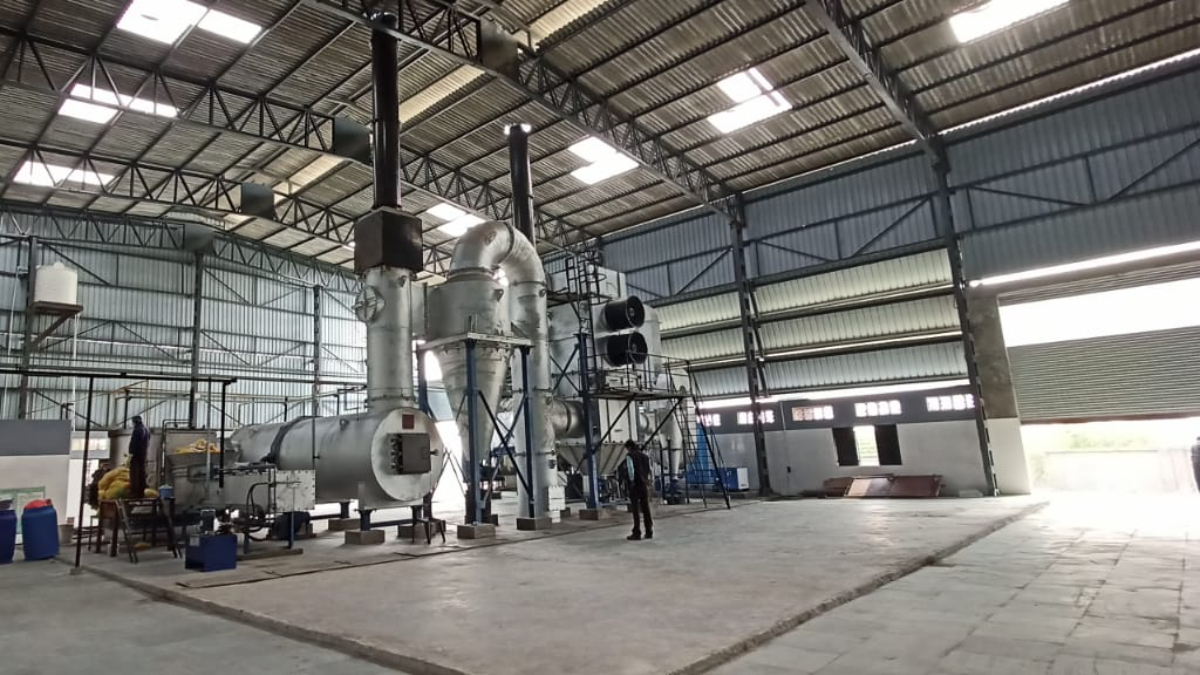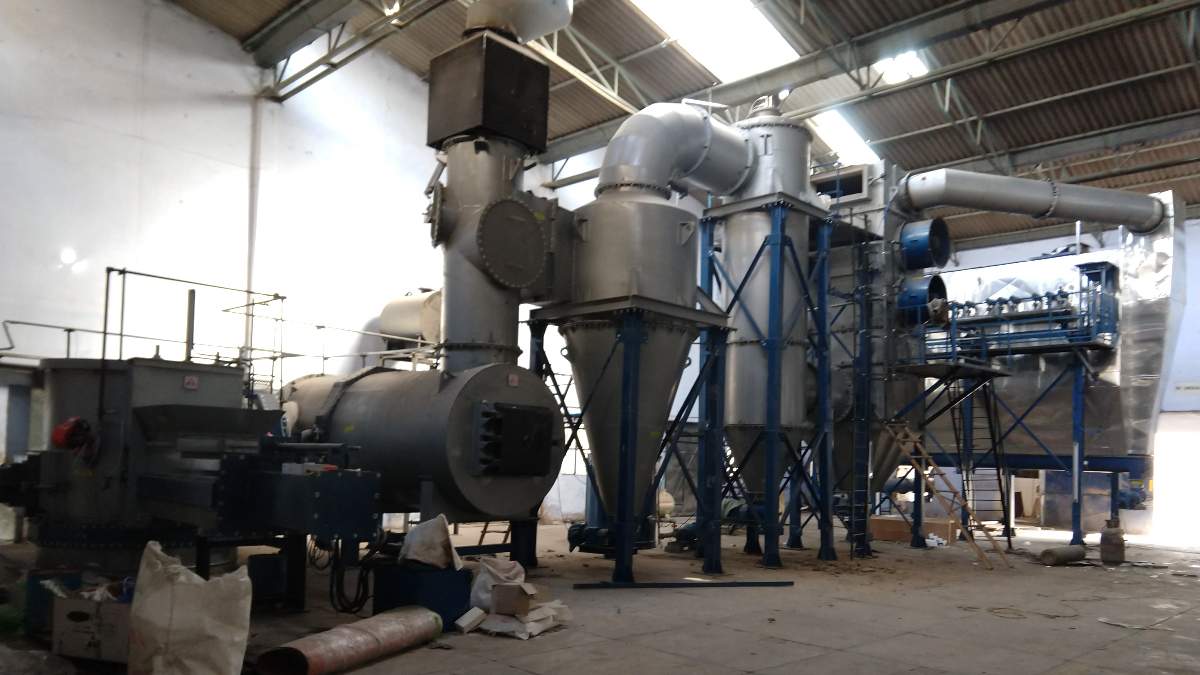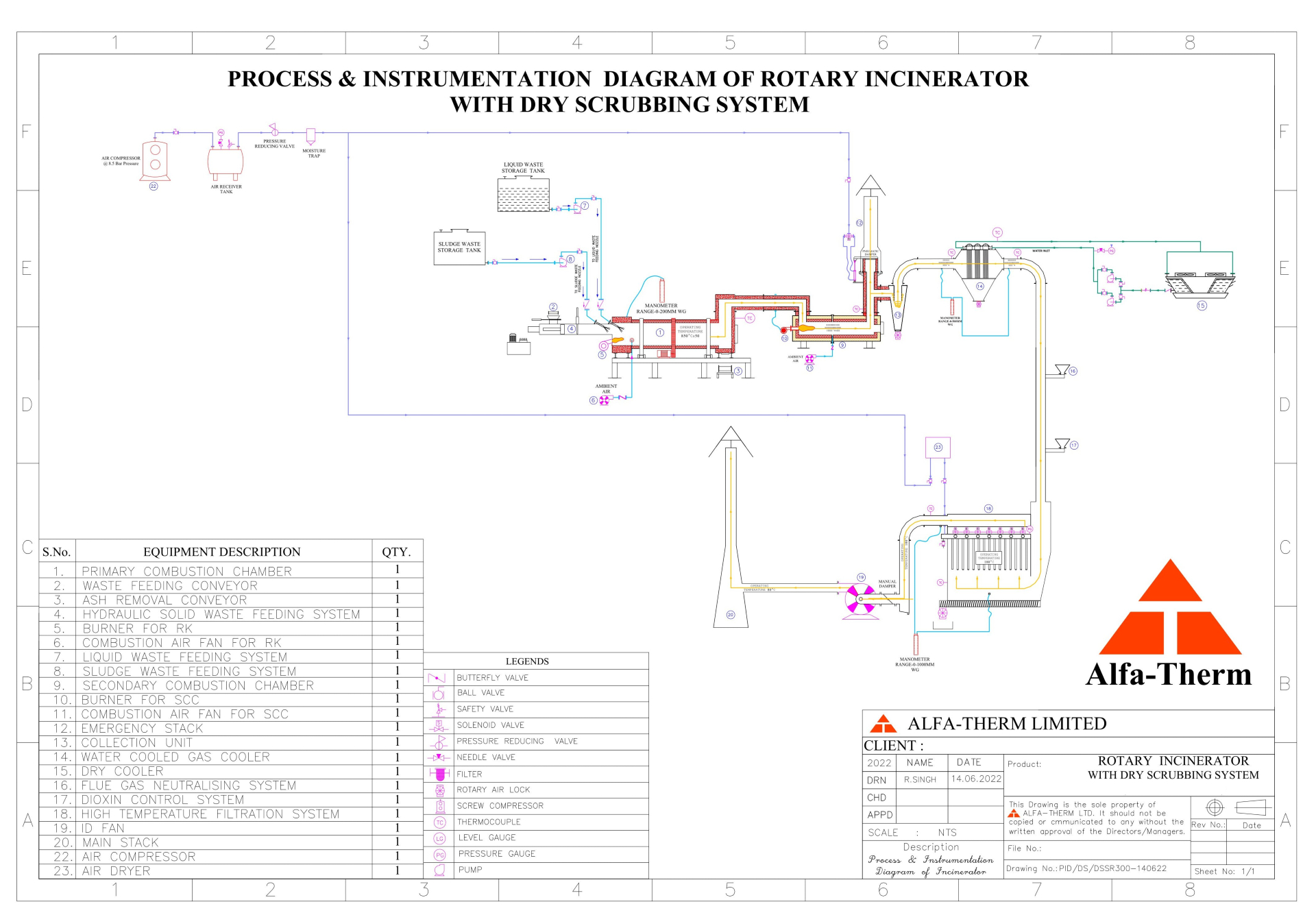Customised Solution with Optimised Design and Engineering
Here are some key points.
1. Purpose:
- The primary purpose of a Biomedical waste incinerator is to eliminate pathogens and reduce the volume of medical waste. Incineration is an effective method to destroy infectious agents, such as bacteria, viruses and other potentially harmful microorganisms.
2. Waste Types:
- Biomedical waste includes various materials such as used needles, syringes, scalpels, gloves, bandages, cultures, tissues, organs, laboratory waste, pharmaceutical waste, and other potentially infectious materials. These wastes are segregated according to specific categories and treated accordingly.
3. Incineration Process:
- The incineration process involves subjecting the medical waste to high temperatures within specially designed incinerators with 2 seconds residence time waste burning at temperatures typically ranging from 800 to 1,200 degrees Celsius (1,472 to 2,192 degrees Fahrenheit). This high temperature effectively burns the waste and reduces its volume by up to 90 to 95 %.
- 1. Static hearth design upto 250 kg/h (8 to 12 hrs Operation)
- 2. Rotary kiln design for bigger capacity and 24 x 7 plant operation
4. Air Pollution Control:
- Alfa therm biomedical waste incinerators are advanced High temperature flue gas filtration systems and Odor to control systems releases control emissions into the atmosphere,To mitigate the environmental impact,
Two type of Air pollution control system provided based on client requirement
- 1. WSS design: wet scrubbing Technology
- 2. DSS design: Dry scrubbing Technology
5. Regulatory Compliance:
- The operation of biomedical waste incinerators is subject to stringent regulations and guidelines imposed by government agencies; We ensure that the incinerators meet specific standards for any local or international regulation such as EPA, EU 2000/76/EC (or 2010/75/EU) emissions control.
Additional feature
- 1. Energy recovery (hot air, thermal oil, steam, hot water, electricity) based on client requirements
- 2. Fully automated PLC and SCADA control system provide
ALFA THERM LTD
- Alfa Therm biomedical waste incinerator is a specialized designed to safely & effectively dispose of medical waste through combustion. Medical waste, also known as biohazard waste or biomedical waste, any kind of waste generated from healthcare activities that may contain potentially infectious or Bio-hazard substances.



